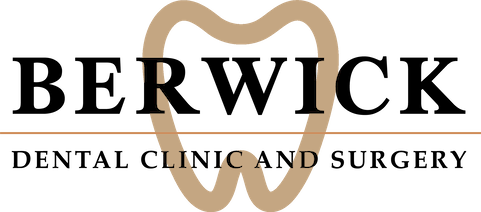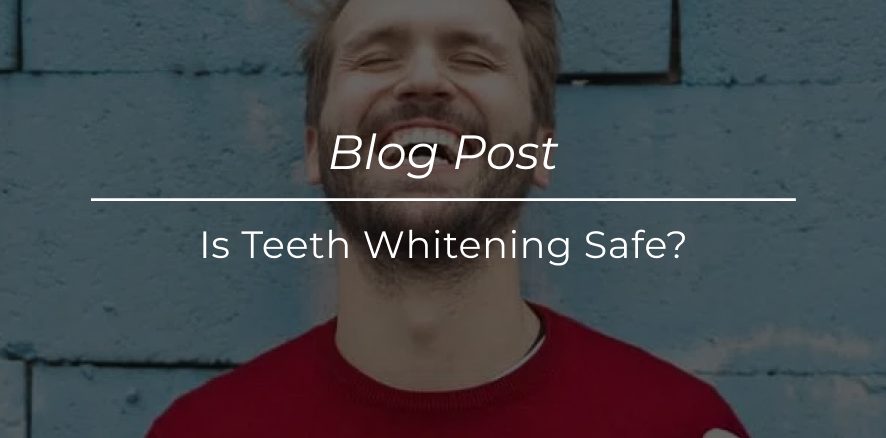- May 13, 2021
Smiles are a big part of our social interaction, relationships, communication and dating, now more so than ever with the pressure and frequency of social media posts and sharing. Looking after our smile and feeling confident about how we look is so important, which is why there are more teeth whitening products available than ever before. But is teeth whitening safe?
Of course, it’s not just about a great photo; our teeth are so important, we use them for eating, speaking, expressing ourselves and making a great first impression, which is why we want to make sure we look our best.
When it comes to any procedure for your body, it’s so important to ask, “is it safe?”. Our body needs to last a long time. For us to be happy and healthy we need to make sure the choices we make won’t do any damage. That goes double for our teeth that are not just functional, they are visual too.
The way to achieve a healthy, beautiful smile is easy, take care of your teeth and get regular checkups from your dentist.
Strong, healthy bright white teeth are something we value, and we should. Teeth are important assets. We do need to be mindful of the products we use to treat our teeth because we don’t want to ingest anything that might be harmful to our body or damaging to our teeth while we get those pearly whites perfected.
How did I get stained teeth?
Stains and teeth discolouration are common and typically only affect the outside of the tooth.
There are a number of factors that can darken the appearance of our teeth.
These include:
- Smoking cigarette smoking or using tobacco products
- Regularly drinking tea, coffee, red wine and certain soft drinks
- Frequently eating red sauces or chocolate
- Tooth decay
- Impact trauma or tooth injury
- Some prescription antibiotics
- Overexposure to fluoride causing a condition known as Dental Fluorosis
- Depleted tooth enamel (seen in elderly patients)
Fortunately, stained or discoloured teeth is a condition that is both treatable and preventable with teeth whitening. That means you can own a brilliant smile and still enjoy all those good foods and beverages that transfer colour.
How can I treat strained teeth?
The best way to go forward is to contact us to discuss different whitening methods. We can recommend a treatment plan that will work for your needs.
There are a variety of ways you can both treat and prevent tooth discolouration. You might like to consider:
- Getting an in-chair tooth whitening treatment at the dentist
- Getting an assisted blue LED treatment in a whitening centre (which may be located in the open space of a shopping plaza)
- Purchasing an at-home treatment from your dentist or over the counter service
Typically whitening toothpastes are used for preventive or only very mild discolourations and contain safe ingredients like baking soda. It will take regular use over a number of months to see results.
The cause of your teeth discolouration may influence which whitening procedures will be effective.
We never recommend buying whitening products online. A purchase without a dentist consultation is probably not going to be strong enough to have any real benefit. Always seek professional advice before starting any procedure. Your health and safety are important.
Which teeth whitening treatment method is right for me?
The length of time it will take to whiten your teeth safely will be influenced by the type of discolouration you have and the method you use to treat it.
To decide which treatment will be effective for you, there are a few things to factor in:
- The cause of the discolouration
- The level of brightness you are looking to achieve
- The current condition of your teeth
- Any dental history, including fillings, false enamels and crowns
- Your treatment budget
- Your age
It’s important to note that different products work in different ways. The at-home kit will administer low levels of bleach in repeat batches. It’s important to factor in how much time and inconvenience this multi-step process will cost you overall.
Let’s look at the two main options for teeth whitening procedures…
- Issued by your dentist
Your dentist will be allowed to use a higher concentration of bleaching agent because they have the ability to safely gauge the highest possible level to use safely. This allows you to achieve a whiter and brighter smile than a home treatment can, and in a faster time frame.
As well as getting a superior result, you will receive personal care from a trained dentist in the comfort of their medical setting.
- At a teeth whitening centre
Over the past few years, teeth whitening centres have popped up in shopping centres and malls across the country.
While it may seem convenient to have a whitening treatment after buying your groceries, the down side is these treatments have a lower concentration than a dentist can provide, meaning results are often less impressive and don’t last as long, resulting in further treatments being needed sooner.
- At-home whitening kit
Choosing the right product is important. There are a large number of brands to choose from which all sound convincing. Ask us to recommend a home treatment kit that will be safe and effective for you.
When treating your teeth at home it’s essential that you read over the instructions and follow every step to the letter for your safety, as well as the effectiveness of the treatment.
Be prepared to repeat the process a number of times to see results as the bleaching compound is not as strong. It’s important to block out a window of time so you won’t be rushed or interrupted during your treatment.
Above all, when it comes to home treatments, it is essential that you handle the products and every step with caution and care.
Is teeth whitening necessary?
Keeping our teeth clean with brushing and dental checks won’t necessarily keep them white. If your teeth are healthy there is typically no harm in having discoloured teeth, however, it can affect self-confidence and self-esteem which impacts social behaviour and happiness.
Make sure you are getting regular check-ups. Tooth discolouration can be an indication of tooth decay or enamel problems, so be sure to get a dental check to be sure your teeth are healthy.
Stained teeth can also be an indication that your oral hygiene routine isn’t effective enough. You can talk to your dentist about how to correctly care for your teeth and which products to use as part of your daily routine.
Teeth whitening is not a superficial procedure. A bright, white smile is important for our presentation, communication and confidence.
Teeth whitening is a personal choice. How you look is entirely up to you and how you feel. For some people some discolouration is fine, for others, even a slight change in colour is enough to warrant a procedure.
Is teeth whitening safe?
Aside from a few considerations, listed below, whitening treatments are safe and well-tolerated by most people.
There are a few occasions where you shouldn’t get a tooth whitening procedure done.
- Pregnancy or breastfeeding
Bleaching procedures are not recommended for pregnant women and nursing mothers. Not to worry, you can still achieve a bright smile if you are a new or expecting mum. We can talk to you about safe whitening alternatives using non-peroxide products.
- Tooth decay or cavity
If you have unhealthy gums, cavities or current problems with your teeth or mouth then it’s best to wait until these are treated before you proceed with whitening. Be sure to get a check-up before doing any home whitening treatments to uncover any hidden conditions that might put you at risk.
- Sensitive teeth
Teeth sensitivity may become worse or be agitated by bleaching agents. Be sure to ask us about whitening alternatives if this is a concern for you.
Choosing a treatment performed by your dentist will help reduce the risk and monitor your progress, while also giving you the brightest possible smile.
If you are ready for a confident and bright smile call us to make an appointment. We are here to help so please, feel free to discuss any questions or concerns you may have around teeth whitening procedures.

